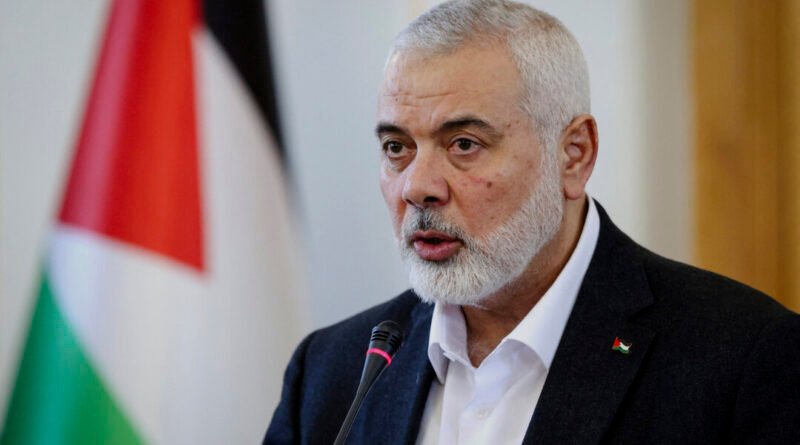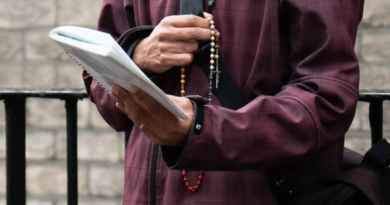Tensions Rise in Middle East Following Death of Hamas and Hezbollah Leaders
Israel has claimed responsibility for the killing of Hezbollah’s Fuad Shukr in Beirut, but has not acknowledged a specific missile strike that killed Hamas’ Ismail Haniyeh in Tehran.
The deaths of two of Israel’s top adversaries within a short span of time have significantly heightened tensions in the region, fueling concerns of potential escalation.
Fuad Shukr, a prominent military leader in Hezbollah, was eliminated in a fighter strike on a building in Beirut’s Hezbollah-controlled southern suburbs on the evening of July 30. The Israel Defense Force (IDF) confirmed his demise and took credit for the attack.
Hamas’ leader, Ismail Haniyeh, was killed the following morning. He was in Iran for the swearing-in of Iran’s new president, and the residence where he was staying was targeted from the air, as reported by Iran’s paramilitary Revolutionary Guard. A bodyguard also lost his life.
While Israel did not acknowledge the attack, Prime Minister Benjamin Netanyahu’s government stated that it would refrain from commenting on the incident.
Tensions in the volatile region escalated further over the weekend following a Hezbollah missile strike on a soccer field in a Druze village in the Golan Heights on July 27, resulting in the tragic deaths of 12 children and teenagers, with over 40 others sustaining injuries.
Israel responded with customary retaliatory air strikes on Hezbollah targets over the weekend, as Netanyahu returned from the United States after engagements with Congress, President Joe Biden, Vice President Kamala Harris, and former President Donald Trump.
Late on July 28, his cabinet authorized him and Defense Minister Yoav Gallant to decide Israel’s manner of retaliation and its timing.
Hamas and Hezbollah are both supported by Iran, which has extensively equipped and trained both organizations. Hezbollah, a Shi‘a Muslim group with religious ties to Iran’s Shi’a theocracy, exerts control over southern Lebanon and is perceived as more potent militarily than the country’s own armed forces.
Iran’s supreme leader Ali Khamenei promised retribution against Israel, deeming it Tehran’s obligation.
Hamas is anticipated to appoint Khaled Meshaal, 68, who previously led the group in exile, as a successor to Haniyeh. A failed assassination attempt was made on Meshaal in 1997.
John Kirby, White House national security communications adviser, mentioned that there are “no signs that an escalation is imminent” after Haniyeh’s demise. Nevertheless, concerns about potential escalation persist within the Biden administration.
The IDF’s chief of staff hinted at Israel having further responses in store. Over 80,000 Israelis have been displaced due to Hezbollah’s rocket attacks, with the group possessing a stockpile of over 100,000 missiles. Pressure mounts on Netanyahu’s government to neutralize Hezbollah, which has sworn to annihilate Israel, thereby enabling citizens to return to their homes.
Lt. Gen. Herzi Halevi visited IDF troops on the northern front with Lebanon on July 31.
“Our intention with Hezbollah is not to return to October 6th,” Halevi conveyed to the troops.
“Muhsan [Shukr] will not be there, but we will also not let the situation return to having [Hezbollah] present on the border, 200 meters from Metula, or from Shtula, or from Rosh HaNikra.”

Halevi alluded to the strike against Shukr, hinting at potential retaliation against Hezbollah’s leader, Nasrallah, who has been in hiding for years, and even suggested the possibility of a ground conflict.
“The IDF knows how to operate and reach a certain window in a neighborhood in Beirut. It knows as well how to target a certain point underground. And we also know how to operate inside on the ground very strongly, and this week you are training for this, and this is a very important capability,” he stated.
The United States has endeavored to forestall a broader conflict. It had urged Israel against striking Beirut or the Hezbollah stronghold outside it, Dahieh. However, Israel went ahead with the attack that led to Shukr’s death.
U.S. critique of Israel on July 31 was subdued. America had placed a $5 million bounty on Shukr for his involvement in the 1983 Beirut barracks bombing, which claimed 241 U.S. Marines’ lives.
Various parties feel compelled to react, as noted by Israel military analyst Elliot Chodoff. Iran might retaliate with another substantial rocket assault akin to April’s incident or opt for a delayed response. Potential targets could be Israeli or Jewish interests abroad since there is no longer a necessity to wait for provocation, given the current circumstances.
He speculated that the two attacks, assuming Israel’s involvement in the Tehran incident, were coincidental rather than premeditated together. Planning such coordinated attacks in advance seems unlikely, according to Chodoff.

Israel had assured Qatar, where Haniyeh resided and where talks were being mediated for a Gaza cease-fire, that it would refrain from targeting Hamas leaders there.
Given Haniyeh’s stays in Turkey and Egypt, Israel sought to maintain stable relations with both countries, Chodoff mentioned.
Contrastingly, Iran’s hostile stance towards Israel made it a likely target for the strike, as per Chodoff.
Israel faces the pressure to act due to the ongoing attrition conflict waged by both Hamas and Hezbollah against it. The prolonged conflict, lasting over nine months, has strained Israel’s military and economy. Failure to neutralize Hezbollah would only perpetuate the war of attrition, Chodoff highlighted.
The terror groups themselves encounter their own pressures, having lost several key leaders. The IDF reported recently that it had eliminated half of Hamas’ leadership. Yahya Sinwar, the top leader remaining in Gaza, is in hiding and maintains sporadic communication with his forces, according to Chodoff.
Israel’s military is gearing up for a potential multifrontal conflict should Iran, along with Hezbollah and the Houthi rebels in Yemen (also Iranian allies), opt for coordinated action, as outlined by Middle East specialist Eli Sperling from the University of Georgia.
Chodoff highlighted Shukr as the final member of a group that assumed control of Hezbollah’s operations in 2008 following an Israeli-U.S. operation that eliminated a previous leader. Several other members of that group have already been eliminated.
Attributing direct responsibility to Shukr for the soccer field attack was overstated, Chodoff opined. Those who carried out the missile launch were at a much lower hierarchy, whereas Shukr was further up and accountable for acquiring the missile.
Sperling pointed out that Iran’s previous missile attack in April, in response to an Israeli strike targeting a high-ranking Iranian official in Damascus, displayed a degree of restraint. Iran provided clear warning of the attack, several missiles failed to reach their targets, and significant support was provided by the United States and Arab allies for missile defense to prevent escalation.
Sperling speculated that Iran might opt for a more forceful response this time around. The attack on Haniyeh, occurring on Iranian soil while he was a guest in the country, represented a highly humiliating incident.
Reports indicated that the utilized missile was a sophisticated and precise munition, entering a window to target Haniyeh and a bodyguard without inflicting significant damage beyond that.





